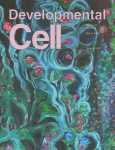 The authors of a Developmental Cell paper have retracted it after the first author admitted to manipulating and falsifying data and reagents.
The authors of a Developmental Cell paper have retracted it after the first author admitted to manipulating and falsifying data and reagents.
The problems came to light after the authors couldn’t reproduce the findings, about a mechanism underlying meiosis. When questioned about the matter, the first author of the paper, Saurav Malhotra, admitted to doctoring data and materials.
Here’s the retraction notice to the paper, “The Anaphase-Promoting Complex/Cyclosome Is Essential for Entry into Meiotic M-Phase:”
This article has been retracted at the request of the authors. Our study reported that APC/C-mediated destruction of protein phosphatase PP6c is a prerequisite for meiotic resumption of immature Xenopus oocytes. Follow-up experiments after publication of the paper performed in our lab revealed severe inconsistencies, and attempts to reproduce the original data were unsuccessful. Confronted with this matter, the first author, Saurav Malhotra, confessed that he had manipulated and falsified reagents and data in the paper. The manipulations and falsifications affect all figures addressing the role of PP6c as the relevant APC/C substrate and all subsequent experiments, including the rescue experiments using PP6c antibodies and the CPEB expression constructs (Figures 2–4 and S2). As the key finding of our study is based on falsified data and is incorrect, the most appropriate course of action is to retract the article. We offer our sincerest apologies to the scientific community for this incident and deeply regret the circumstances.
The study — published in January, 2016 — is yet to be cited, according to Thomson Reuters Web of Science.
Thomas Mayer, a biologist at the University of Konstanz in Germany who co-authored the paper, told us:
Follow-up experiments revealed that the finding that PP6c is degraded upon GVBD is not true. This finding triggered our internal investigation.
He added:
I hope that the harm for the community is minimal.
A commenter on PubPeer praised the authors’ actions:
Four very heartfelt thank-yous to the authors who worked to identify the reproducibility issues and acted so rapidly. Distressed as you will be about this, I am sure that your actions have earned you the deep respect of many scientists who will want to wish you all the best for your future research.
We could not find contact details for Malhotra. We’ll update the post with anything else we learn.
Hat tip: JT
Like Retraction Watch? Consider making a tax-deductible contribution to support our growth. You can also follow us on Twitter, like us on Facebook, add us to your RSS reader, sign up on our homepage for an email every time there’s a new post, or subscribe to our new daily digest. Click here to review our Comments Policy. For a sneak peek at what we’re working on, click here.